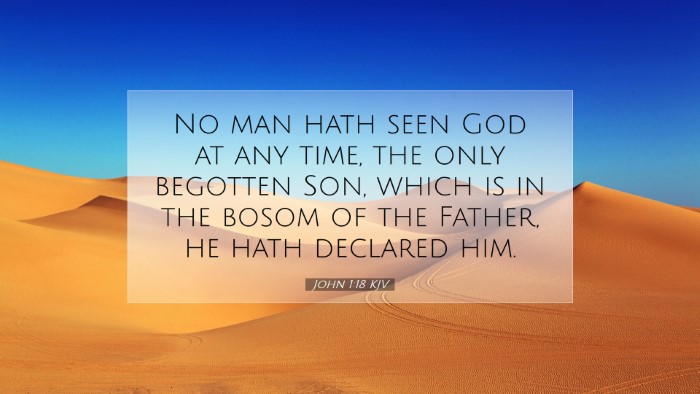Old Testament
Genesis Exodus Leviticus Numbers Deuteronomy Joshua Judges Ruth 1 Samuel 2 Samuel 1 Kings 2 Kings 1 Chronicles 2 Chronicles Ezra Nehemiah Esther Job Psalms Proverbs Ecclesiastes Song of Solomon Isaiah Jeremiah Lamentations Ezekiel Daniel Hosea Joel Amos Obadiah Jonah Micah Nahum Habakkuk Zephaniah Haggai Zechariah MalachiVerse
John 1:1 John 1:2 John 1:3 John 1:4 John 1:5 John 1:6 John 1:7 John 1:8 John 1:9 John 1:10 John 1:11 John 1:12 John 1:13 John 1:14 John 1:15 John 1:16 John 1:17 John 1:18 John 1:19 John 1:20 John 1:21 John 1:22 John 1:23 John 1:24 John 1:25 John 1:26 John 1:27 John 1:28 John 1:29 John 1:30 John 1:31 John 1:32 John 1:33 John 1:34 John 1:35 John 1:36 John 1:37 John 1:38 John 1:39 John 1:40 John 1:41 John 1:42 John 1:43 John 1:44 John 1:45 John 1:46 John 1:47 John 1:48 John 1:49 John 1:50 John 1:51

